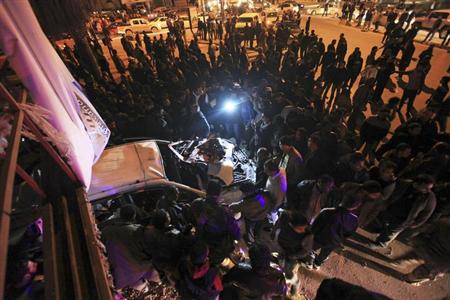---------------------------------------------------------------------------------------------------
BENGHAZI, Libya (Reuters) - As night fell over Benghazi, a familiar sound echoed across the eastern Libyan city - an explosion, and then gunfire. A bomb had just been thrown at a police car on patrol, injuring an officer.
It was the latest of many attacks on local security forces. Two months before, the man whose job it was to ensure Benghazi was safe, the police chief, was shot dead outside his home.
Two years after Libya's second city kindled the uprising that oustedMuammar Gaddafi, it epitomises a popular revolution gone awry - rival militias and Islamist gunmen more powerful than the police, moving residents to ask: where is the state?
"Imagine a city taken over by militias when all you want is to support the state," activist Mohammed Buganah said. "People feel insecure. They are very upset and annoyed about this."
There have been assaults on diplomats and international missions, including the September 11 killing of the U.S. ambassador, amid a rising tide of kidnappings, bombings and assassinations, mainly of security officials.
The anarchy, along with garbage-strewn streets and unraveling municipal services, have deepened a sense of neglect by the capital Tripoli far to the west and reawakened demands for autonomy in a region with most of Libya's oil wealth.


